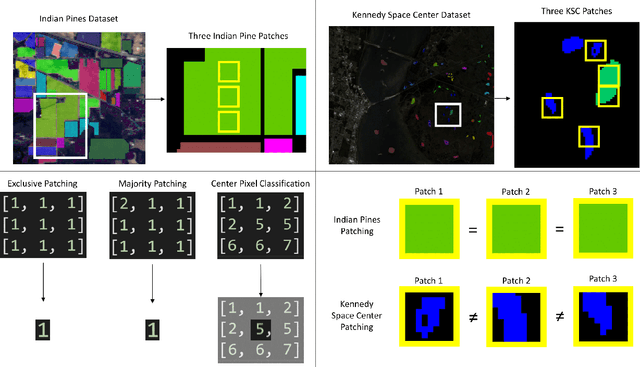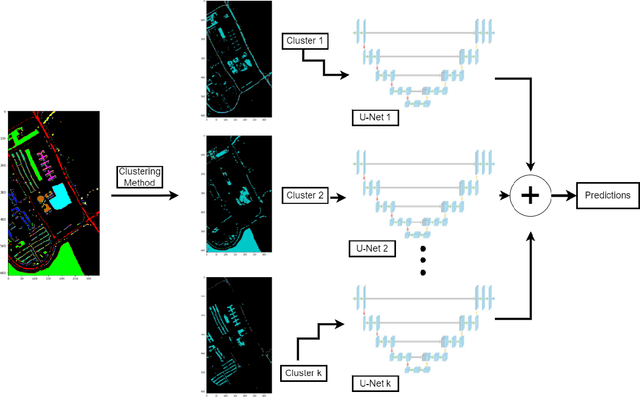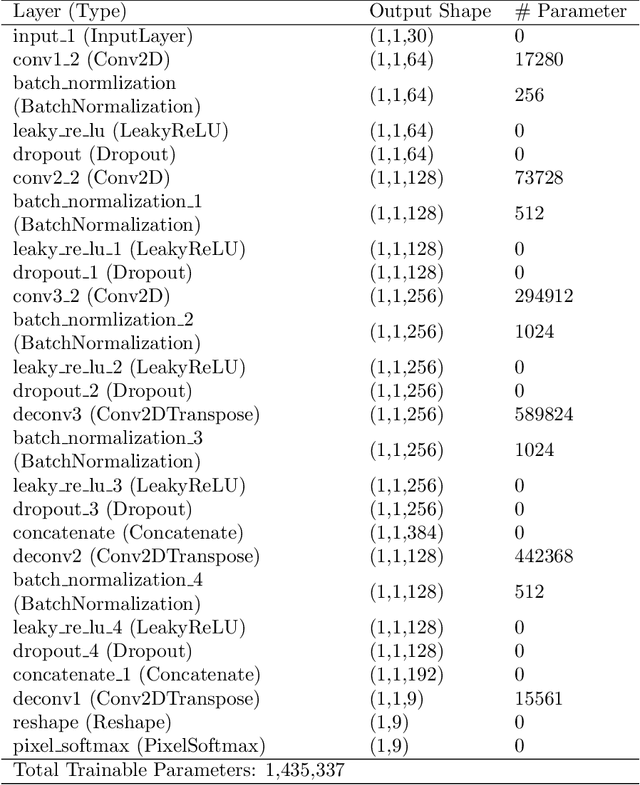CEU-Net: Ensemble Semantic Segmentation of Hyperspectral Images Using Clustering
Paper and Code
Mar 14, 2022



Most semantic segmentation approaches of Hyperspectral images (HSIs) use and require preprocessing steps in the form of patching to accurately classify diversified land cover in remotely sensed images. These approaches use patching to incorporate the rich neighborhood information in images and exploit the simplicity and segmentability of the most common HSI datasets. In contrast, most landmasses in the world consist of overlapping and diffused classes, making neighborhood information weaker than what is seen in common HSI datasets. To combat this issue and generalize the segmentation models to more complex and diverse HSI datasets, in this work, we propose our novel flagship model: Clustering Ensemble U-Net (CEU-Net). CEU-Net uses the ensemble method to combine spectral information extracted from convolutional neural network (CNN) training on a cluster of landscape pixels. Our CEU-Net model outperforms existing state-of-the-art HSI semantic segmentation methods and gets competitive performance with and without patching when compared to baseline models. We highlight CEU-Net's high performance across Botswana, KSC, and Salinas datasets compared to HybridSN and AeroRIT methods.
 Add to Chrome
Add to Chrome Add to Firefox
Add to Firefox Add to Edge
Add to Edge